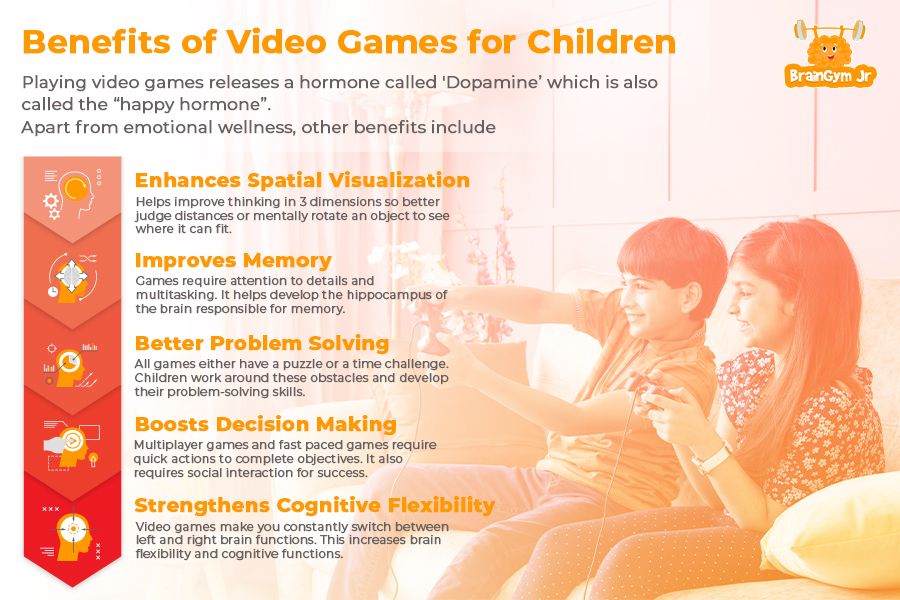Do Video Games Help Children?
“Why don’t you do something else?”, “How long will you be stuck with your video games?”
These are some questions we grew up hearing and continue to shoot at our children even today. With technological advancement and game developers creating fresh content, video games are enjoyed by young and old. Nevertheless, these games are always eyed with suspicion. Parents are always focusing on the negative effects of video games. Since screens have become an inevitable part of life, parents are extra cautious of their child’s screen time these days.
Studies have been conducted for decades on the negative effects of gaming that include addiction, depression and aggression which certainly should not be ignored. However, in recent times, newer studies have shown that playing video games may also help children develop problem-solving skills and strengthen a range of cognitive skills.
However, in order to maximize the benefits of video games and curtail the negative effects, it is important to limit the time spent playing games. Parents should also be aware about what type of games their children are playing. It is important to create a balance through controlled access to prevent addiction to the games.
Read More About: Benefits of Gamifying the Learning Process
Playing video games releases a hormone called ‘Dopamine’ which is also called the “happy hormone”. This hormone creates a feeling of happiness and contentedness. Along with emotional wellness, here are a few more benefits of indulging a little in video games:
Benefits of Indulging In Video Games
Enhance Spatial Visualization
In a 2013 study, the American Psychological Association observed that shooter video games improve how people think about objects in three dimensions. Gamers are better at judging distances between objects or mentally rotating objects to imagine how they might fit into a space. This enhanced spatial visualization has practical benefits, like organizing your closet in a way everything fits or judging if you will be able to park your car in a tight spot.
Improve Memory
Gaming has positive effects on memory. Many of the Games children play require attention to detail. Juggling multiple goals while gaming develops the hippocampus of the brain. This is the part of the brain responsible for converting short-term memory to long-term memory.
Better Problem Solving
Playing games can teach children to solve different kinds of problems. Almost all video games involve problem-solving, like figuring out a puzzle or finding the fastest escape route. When children try to work their way around these obstacles, they develop their problem-solving skills.
Boosts Decision Making
Multiplayer games become virtual social communities, where decisions need to be made quickly about whom to trust or reject and how to lead a group. Fast-paced video games require players to make decisions quickly. These energizing action games can also improve your ability to make decisions in real life.
Strengthens Cognitive Flexibility
Cognitive flexibility is defined as the ability to adapt behaviour in response to changes in the environment. Video games challenge the brain, switching from the left brain to the right frequently. This increases the brain flexibility and cognitive function. This has also been seen to help gamers learn and retain information for longer time.
Liked This? Learn more about 5 ways games benefit children
When children play video games or solve puzzles & challenges, their brain is working and growing. While they figure out how a game works and complete puzzles to master a level, their brain creates new connections. Continued learning and stimulation is essential to keeping our brain healthy and functioning at its highest potential. Controlled gaming with low violence can actually have a positive impact!
“Games are transforming the brains of people who play them in largely positive ways’”
– Jane McGonigal





